US Coast Guard Cutter Healy Reaches the North Pole
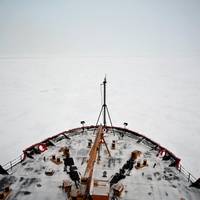
The U.S. Coast Guard Cutter Healy (WAGB 20) reached the North Pole Friday after traversing the frozen Arctic Ocean, marking only the second time a U.S. ship has reached the location unaccompanied, the first being Healy in 2015.Healy, a medium icebreaker, and crew departed Dutch Harbor, Alaska, Sept. 4, beginning their journey to reach latitude 90 degrees north. The cutter and crew supported oceanographic research in collaboration with National Science Foundation-funded scientists…
Alaska Requests Limits on US Offshore Drilling
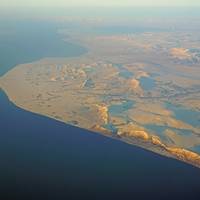
Alaska Governor Bill Walker said on Tuesday he has asked U.S. Interior Secretary Ryan Zinke to pare back a Trump administration plan for oil and gas leasing off the state's coast. While Walker supports offshore oil development, he said the Interior Department should focus on the most prospective areas off Alaska – the Beaufort and Chukchi seas in the Arctic and Cook Inlet in southern Alaska – and drop all others from the leasing plan. In asking for proposed lease sales to be dropped…
OP/Ed: Obama’s Arctic Decision Undercut His Own Legacy
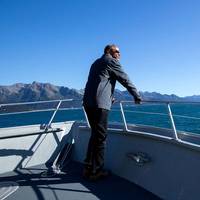
On December 20, 2016, in an 11th hour unilateral action designed to cement his environmental legacy, President Obama withdrew 3.8 million acres in the north and mid-Atlantic Ocean and 115 million acres in the U.S. Arctic Ocean (including the entire Chukchi Sea and a significant portion of the Beaufort Sea) from future oil and gas leasing. Unlike the five year moratoria announced by Canada, President Obama touted these closures as “permanent.” Not only does this short-sighted decision threaten the economic lifeline of Alaska, U.S. energy leadership and U.S.
Op/Ed: Obama’s Parting Salvo at US Energy Security

Randall Luthi, President of the National Ocean Industries Association (NOIA), does not pull any punches as he weighs in on the Obama administration’s release of the Final 2017-2022 Outer Continental Shelf (OCS) Oil and Gas Leasing Program. The good news is we now have an offshore leasing plan for the next five years that includes a schedule for regular oil and gas sales in the Gulf of Mexico. The bad news is it is only half a plan. Offshore energy development is a vital part of the U.S. economy, providing jobs, energy security and much needed government revenue.
NOIA Congratulates Trump, Urges Path Forward on Offshore Development
NOIA President Randall Luthi today released the following statement on the election of Donald Trump as the next U.S. “On behalf of the National Ocean Industries Association (NOIA), I congratulate President-elect Trump on his victory at the polls. The American people have spoken, and this long and contentious election is finally over. Even though it appears the political divide in our Nation has widened, now is the time to work together to promote wise energy policies that will enhance our ability to create jobs and promote energy security. “President-elect Trump should unequivocally reestablish the U.S. commitment to ‘all-of-the-above’ energy policies.
Sailing into the Arctic’s Future

Last month, a large cruise ship completed its inaugural cruise through the Northwest Passage. The historic journey brought nearly 1,700 passengers from Seward, Alaska, past the rugged wilderness and isolated villages of the Arctic, to the concrete jungle of New York City. Along the way, passengers and crew were treated to a stunning contrast of climates, geography and culture. While understandable, concerns over passenger safety, wildlife disruptions and water pollution went unrealized during the historic cruise through the passage.
Arctic Sea Ice Melt Continues
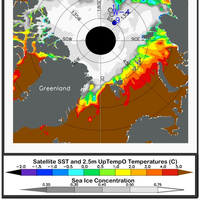
As of August 14, Arctic sea ice extent is tracking third lowest in the satellite record, according to the National Snow & Ice Data Center (NSIDC). The southern route through the Northwest Passage appears to be largely free of ice. Despite a rather diffuse ice cover in the Chukchi Sea, it is unlikely that Arctic sea ice extent this September will fall below the record minimum set in 2012. As of August 14, Arctic sea ice extent was 5.61 million square kilometers, the third lowest extent in the satellite record for this date and slightly below the two standard deviation range.
Arctic Sea Ice Melt at Higher Level
Sea ice is decreasing in the Arctic but year-to-year variability in sea ice extent is large. Ice extent is influenced by atmospheric circulation, with temperatures dictating ice melt, and winds shifting the ice, reports the Nature. According to National Snow and Ice Data Center, through the first half of July, Arctic sea ice extent continued tracking close to levels in 2012, the summer that ended with the lowest September extent in the satellite record. The stormy weather pattern that characterized June has persisted into July. Nevertheless, sea ice melt began earlier than average over most of the Arctic Ocean. As of July 18, Arctic sea ice extent was 7.82 million square kilometers (3.02 million square miles).
US Appeals Court Rejects Challenge to Shell Spill Plans in Alaska
A divided federal appeals court rejected an effort by environmental groups to void a U.S. agency's approval of two oil spill response plans by Royal Dutch Shell Plc related to the company's oil leases in the Beaufort and Chukchi seas on Alaska's Arctic coast. By a 2-1 vote, the 9th U.S. Circuit Court of Appeals on Thursday rejected a claim that the federal Bureau of Safety and Environmental Enforcement, which is part of the Department of the Interior, acted unlawfully in approving the plans, which relate to leases from 2005, 2007 and 2008. Many environmental advocates oppose offshore energy exploration in the Arctic, on concern that any spill might prove difficult to clean up once production begins. (Reporting by Jonathan Stempel in New York; Editing by Chizu Nomiyama)
US Proposes First Rules for Arctic Oil, Gas Drilling
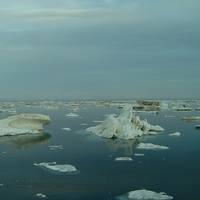
The Obama administration on Friday proposed standards on exploratory drilling for oil and gas in U.S. Arctic waters that would add costs for energy companies but aim to protect against catastrophic spills. The rules, proposed by the Department of Interior, require for the first time that energy companies have access to equipment to contain potential well blowouts, such as rigs that can drill so-called relief wells. The companies would also need to ensure quick access to capping stacks and containment domes while drilling in the Chukchi and Beaufort seas off Alaska.
US Proposes Allowing Oil, Gas Drilling off Atlantic Coast
The Obama administration on Tuesday proposed allowing for the first time oil and gas exploration in a wide swath of U.S. waters off the Atlantic Coast. The 2017 to 2022 drilling plan begins a process that could take many years before waters off the coasts of Virginia, North Carolina, South Carolina or Georgia are cleared for drilling. It expands on the last five-year plan initially issued in 2010 that allowed drilling off Virginia. The administration canceled a lease sale there after BP Plc's deadly explosion and oil spill in the Gulf of Mexico that year. The plan includes a potential lease sale in the Atlantic around 2021 but it could be withdrawn if scientists discover that the area is too fragile.
Taming the Arctic, One Ferry at a Time
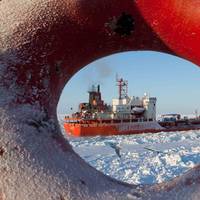
Ferries for Alaska’s harsh conditions, built in Alaska by Alaskans. Vigor and Elliott Bay Design Group team up for a winning combination as the new Alaska Class Ferry Project takes shape. With its network of islands and fjords, rugged mountains and spectacular tidewater glaciers, Alaska’s Inside Passage may make a perfect summer cruise destination, but locals can’t choose when they travel. So when Alaskans need transport, the Alaska Marine Highway System (AMHS) must find a way to move them.
An Open Arctic and its Impact on Oil Drilling
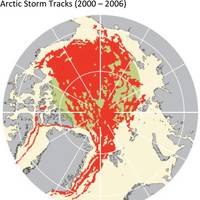
William Cho, Head of MatthewsDaniel Weather, a division of the Bureau Veritas Group, explains why improvements in drilling technologies and weather monitoring systems have made offshore shelf drilling operations in the Arctic Circle increasingly attractive to upstream oil and gas companies and their investors. Rising crude oil prices motivate not only technological innovators to explore cheaper alternative energy sources, such as solar panels and wind turbines, but also upstream oil and gas companies to explore new oil reserves which had not otherwise been economical.
Arctic Shipping Routes: P&I Insurance FAQs
The UK P&I Club has compiled an FAQ which focuses on the implications for P&I insurance of choosing to use the Northern Sea Route. The Northern Sea Route (NSR), or North East Passage, runs along the Russian coast from the Atlantic to the Pacific through the Kara, Laptev, East Siberian, and Chukchi Seas, having the potential to significantly shorten voyage times between European and Far Eastern ports. The exact routing is variable and depends on the time of the year, ice conditions, and the size and draft of the ship in question. The route has long been used by Russian shipping for domestic purposes, but, with climate change reducing levels of Arctic sea ice, has been used for commercial voyages by international shipping since 2009 and numbers of such transits have steadily increased.
"Safe Drilling in the Far North is a Fantasy": Greenpeace

“Even a cursory glance at Shell’s oil spill response plans shows that the company could not deal with an accident in these remote and challenging waters, and we’re disappointed that the court ruled in Shell’s favour. Despite admitting that a spill in the frozen north is inevitable, Shell operated with a response plan that relied on untested technology and equipment totally incapable of working effectively in some of the harshest conditions on Earth. The company’s claim that it could handle a worst-case spill in the Chukchi Sea is absurd. “Safe drilling in the far north is a fantasy.
Offshore Revenue Sharing Legislation Passes U.S. House
The U.S. House of Representatives has passed H.R. 2231, the 'Offshore Energy and Jobs Act'. The legislation would open new offshore areas to exploration by requiring the Obama Administration to create a new five year leasing plan for the United States’ offshore energy resources in areas containing the most oil and gas potential. Additionally, it would create a fair and equitable offshore revenue sharing program for coastal states like Alaska. “Once again the House of Representatives continues to lead the way when it comes to increasing domestic energy production. Today’s legislation would expand American offshore energy development, including more leasing in Alaska’s Beaufort and Chukchi Seas,” Alaskan Rep. Congressman Don Young said.
NOAA Considers Effects of Arctic Oil and Gas Activities
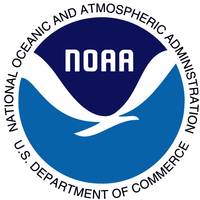
NOAA is seeking comments on a supplemental draft environmental impact statement (EIS) for oil and gas activities in the Arctic Ocean. The draft, developed in collaboration with the Department of the Interior's Bureau of Ocean Energy Management (BOEM), includes analysis on how a broader range of potential offshore oil and gas activities could affect the environment, with a specific focus on marine mammals and the Alaska Native communities that depend on the animals for food and cultural traditions.
Shell Announce Pause in Alaska Drilling Program
Royal Dutch Shell plc will pause its exploration drilling activity for 2013 in Alaska’s Beaufort and Chukchi Seas. Shell inform that the time out this season will be used to prepare equipment and plans for a resumption of activity at a later stage. “We’ve made progress in Alaska, but this is a long-term program that we are pursuing in a safe and measured way,” said Shell Oil Company President, Marvin Odum. Alaska holds important energy resources. At the same time, securing access to those resources requires special expertise, technology and an in depth understanding of the environmental and societal sensitivities unique to the region. Shell is one of the leaders in an industry move into offshore Arctic exploration.
Shell's Arctic Operations: US Government Launches Probe
Secretary of the Interior, Ken Salaza, launches review of the 2012 offshore drilling program in the Beaufort & Chukchi Seas. The expedited, high-level assessment of the 2012 offshore drilling program in the Beaufort and Chukchi Seas is to review practices and identify challenges as well as lessons learned. The review, which is expected to be completed within 60 days, will pay special attention to challenges that Shell encountered in connection with certification of its containment vessel, the Arctic Challenger; the deployment of its containment dome; and operational issues associated with its two drilling rigs, the Noble Discoverer and the Kulluk.
NOIA Congratulates Shell
“Today we congratulate Shell on the completion of a successful and historic drilling season offshore Alaska. This is an important achievement for Shell, for the offshore industry and for the nation. Shell conducted the first drilling we’ve seen in offshore Alaska in decades; and in two sites simultaneously. With all the necessary permits in hand, Shell drilled preparatory wells in both the Beaufort and Chukchi Seas safely and responsibly. Shell’s perseverance and success in the region should be encouraging to our entire industry.
Vigor Industrial: A Rising Star in Shipbuilding in the Pacific Northwest & Alaska Arctic

“There is a resurgence of the marine industry in the Pacific Northwest we haven’t seen for 20 to 30 years now,” said Vince Piscitello, Vice President of Business Development for Vigor Industrial LLC. “The oil and gas industry is really new to our area,” he said, although he expects to see it grow significantly with Shell’s exploration of the Chukchi and Beaufort Seas off Alaska’s northern coast. State run ferry operations in Washington and Alaska are at a point where they must renew fleets built in the 50s and 60s.
Shell Hits Snags in Alaska Drilling
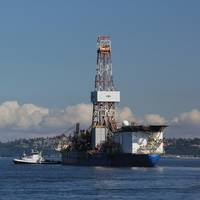
While much attention justifiably has been paid to the expansion of offshore energy operations in the Arctic, according to a Reuters report one of the pioneers, Shell, has hit a few snags in its long-anticipated exploration drilling in the Chukchi and Beaufort Seas. According to the news agency, heavier than expected ice in Arctic waters off Alaska will likely delay until August it exploration drilling, and according to a report in the July 11 edition of the Wall Street Journal the company is facing delays to get final approval from the U.S.
Greenpeace Demands the Arctic be Protected
Greenpeace maintains that what happens in the Arctic affects us all. Besides acting as a planetary air-conditioner, the region is a bellwether for the health of our climate and the global ecosystem. As the ice melts and is replaced by large patches of dark, open water, even more of the sun’s heat is absorbed and the melting increases. The Arctic is warming faster than any other place on Earth. Ice is disappearing at unprecedented levels and with it the habitat of species like the polar bear, while the way of life of the four million people who live above the Arctic Circle is changing forever. But rather than seeing this as a clear warning and spur to positive action…







